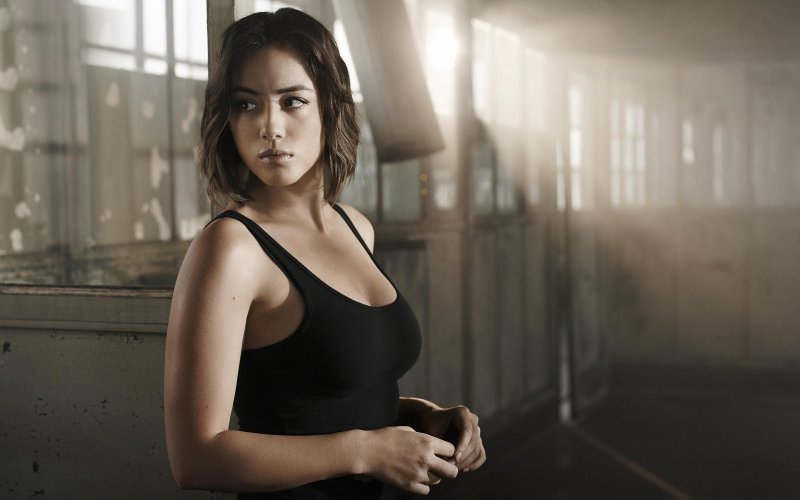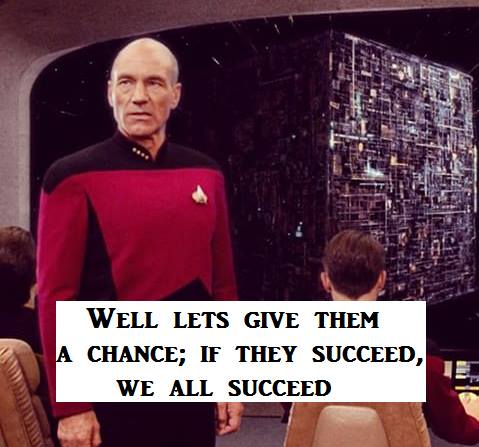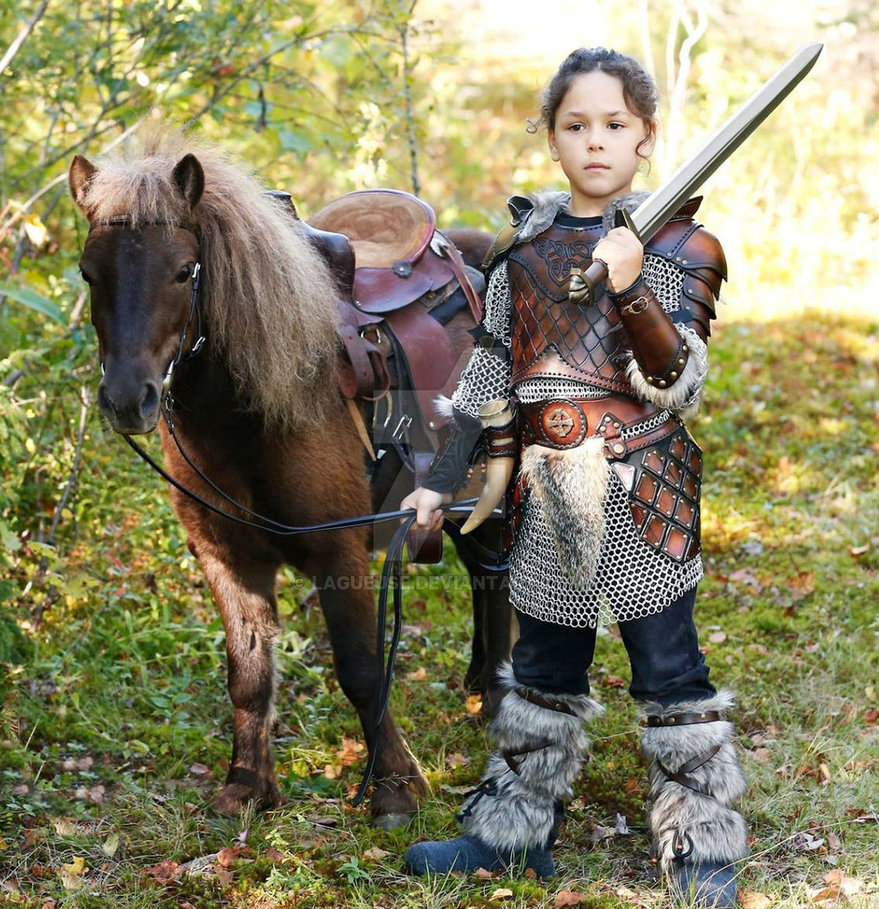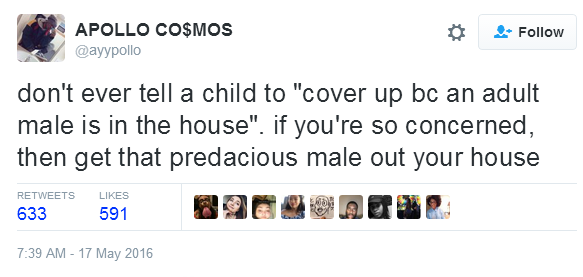
Agents of SHIELD’s Chloe Bennet: Why Marvel Needs to Diversify
TV’s only Asian-American superhero opens up about the need for representation onscreen—and why her band of SHIELD agents totally belong in Marvel’s movies.
“Four years ago, Marvel’s Agents of SHIELD star Chloe Bennet was known professionally as Chloe Wang, aspiring actress and teenage dabbler in Shanghai pop stardom. In the states, however, Hollywood casting agents were less than welcoming.
At least until she changed her last name.
“Oh, the first audition I went on after I changed my name, I got booked,” Bennet tells The Daily Beast, in an interview timed to Marvel’s Women of Power month. “So that’s a pretty clear little snippet of how Hollywood works.”That audition was for the role of Hailey, an office assistant on ABC’s Nashville. That same year, Bennet was cast as the lead in Marvel’s first cinematic universe TV show, the Joss Whedon-created SHIELD. Over three seasons, Skye, a headstrong young “hacktivist” who gets recruited by SHIELD and eventually discovers her real identity, the half-Inhuman Daisy Johnson (a.k.a. Quake), has evolved into what is still a rarity on TV: a superhero who happens to be both female and Asian-American.
“I wish people talked about that more,” Bennet says. “I don’t know if it’s good or bad, but when Supergirl came out, people were like, ‘This is the only superhero on TV that’s a female!’ And I was like, ‘Hold on! I’m pretty sure Daisy’s been here.’ And I also happen to be half-Chinese and I’m so proud of that.”
“I want to be clear because some of my Asian-American fans seem to think I did that [changed last names] because I didn’t want to known as Chinese, but it’s so the opposite,” she adds. “I just wanted to be known as me and let my personality define who I was, rather than my ethnicity.”
Bennet—who is loud and funny and blunt in conversation—then launches into her SHIELD audition story, told with a mixture of endearing self-loathing and pride.
“When we were down to seven girls [up for the role of Skye], it was this completely diverse group of girls I was up against. And it was really about who was right for the part,” she says. “We were testing and we came out of the room and I was up next and Joss Whedon was there and said, ‘Hi.’ I got kind of nervous and looked at him. He just looked really tired. And I was like, ‘You look like shit’—this right before I went in for my last audition.“He started laughing and was like, ‘Well I am tired,’” she says, groaning at the memory. “And I was like, ‘I mean, you look tired in a good way, like you’re really busy! And accomplished!’ It was so Skye Season 1 that I think he was like, ‘Yup, that’s her.’”
Because of Marvel’s “cinematic universe” design, SHIELD takes place during the events of the comic book movie franchise’s big-screen exploits—meaning that whatever havoc the Avengers wreak in their city-smashing adventures has real-world consequences for the show’s on-the-ground SHIELD agents.
When Captain America: The Winter Soldier revealed that the evil Nazi organization HYDRA had been embedded within SHIELD since shortly after World War II, the show, whose entire first season built up to the events of Winter Soldier, took that and ran with it, spinning out two seasons of intrigue.But while Marvel’s movies often affect the show, SHIELD’s narrative rarely bears weight on the big-budget blockbusters—even when the stories it’s telling should. In the upcoming Captain America: Civil War, for example, Marvel’s superheroes choose whether to submit to official government oversight, a measure (called the Sokovia Accords, the onscreen version of the comic books’ Superhero Registration Act) pushed on them by a United Nations panel.
Incorporating SHIELD’s ongoing Inhumans storyline would actually raise the stakes of the movie: the presence of hundreds if not thousands of undiscovered Inhumans (people with the ability to develop superpowers) would give governments extra incentive to push the Sokovia Accords on all superhumans. Recent interviews with Civil War directors Joe and Anthony Russo, however, indicate the directing duo are entirely unconcerned with what’s going on in the world of SHIELD.
“I think we’re all on the same page besides them,” Bennet says, sighing at the missed opportunity. “But they’re gonna do what they’re gonna do, and I’m really happy with our little show. We’ve been dealing with the topic of Civil War for a while now—at least, Daisy has. She’s a SHIELD agent but also a human and she’s completely torn.”
If Bennet had her way, of course, Civil War would bring certain SHIELD-specific changes to the Marvel universe: “I would like us to be put in the movie,” she laughs. “That would make sense. I would like the Avengers to find out that Agent Coulson’s still alive. And Daisy’s incredibly powerful. I think you’ll see toward the end of the season her strength as a character and a leader, and her power as a superhero really expands—I’m just saying, the Avengers could use our help, if they just asked.”
Marvel’s TV universe, in the meantime, continues to expand, with street-level heroes like Daredevil, Jessica Jones, Luke Cage, and Iron Fist getting their own Netflix shows. With the latter series’s casting announcement—revealing that Game of Thrones actor Finn Jones will be taking on the role of Danny Rand—a familiar refrain decrying the MCU’s lack of diversity reverberated across the Internet again.
When asked if she was among the thousands calling for the traditionally white Danny Rand—a kung fu master—to be played by an Asian actor, Bennet answers without missing a beat.“One-hundred percent. I actually saw that [casting] news and I can’t lie, I was a little [disappointed],” she says, before breaking into laughter again. “I love Marvel, but…”
“I know they want to stay true to their characters but, you know, every female character in Marvel comics also has, like, triple-Z-sized boobs,” she reasons. “So if they cast actors based on the way characters look on the page, I don’t think even Scarlett Johansson—well, maybe Scarlett Johansson—would be in the movies.”As for Marvel’s ever-expanding movie arm—which will feature its first character of color in a standalone film in 2018’s Black Panther—Bennet maintains there’s room for improvement there as well.
“I think they could do better,” she says. “You know, there are a lot of white guys named Chris. But I think they will, because it’s important. It’s the right thing to do. Marvel’s a smart company and I think they will represent their fans from around the world. They can take note from the way we’re going on the show, ‘cause we’re doing a pretty good job.”This is amazing and good and wow.


